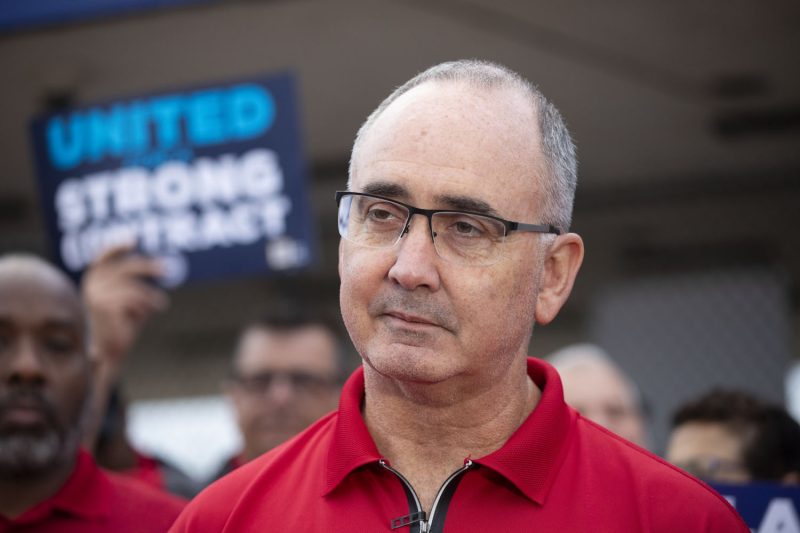In a recent development within the automotive industry, the United Auto Workers (UAW) union has challenged the results of a union election at a Mercedes-Benz plant in Alabama. The UAW has taken the step of asking the National Labor Relations Board (NLRB) for a new election, citing alleged interference from the management of Mercedes-Benz.
The union vote at the Mercedes-Benz plant in Alabama has been a contentious issue, with both sides closely monitoring the situation. The UAW has been actively campaigning to unionize the workers at the plant, arguing for better pay, improved working conditions, and greater job security. On the other hand, Mercedes-Benz has expressed its opposition to unionization, with concerns about potential disruptions to their operations and the autonomy of the plant’s workforce.
The UAW’s challenge to the election results stems from allegations of interference from Mercedes-Benz management, which the union claims may have influenced the outcome of the vote. According to the UAW, Mercedes-Benz engaged in unfair labor practices by allegedly coercing and intimidating workers to vote against unionization. These allegations have raised concerns about the integrity of the election process and the rights of the workers to make a free and informed choice.
The NLRB will now review the UAW’s request for a new election and investigate the allegations of interference by Mercedes-Benz management. This review process will be crucial in determining whether the election results should be upheld or if there is sufficient evidence to warrant a new vote. The NLRB’s decision will have significant implications not only for the workers at the Mercedes-Benz plant but also for labor relations within the automotive industry more broadly.
The ongoing dispute between the UAW and Mercedes-Benz highlights the complexities and challenges associated with unionization efforts in modern workplaces. As companies and workers grapple with issues of job security, compensation, and working conditions, the role of labor unions in advocating for the rights of workers remains a critical one. The outcome of the NLRB’s review of the union election at the Mercedes-Benz plant will be closely watched by stakeholders on all sides of the debate.
In conclusion, the UAW’s challenge to the union election results at the Mercedes-Benz plant in Alabama signals a pivotal moment in the ongoing efforts to unionize workers in the automotive industry. The outcome of the NLRB’s review will not only impact the rights of the workers at the plant but also set a precedent for future labor relations in similar settings. The dispute underscores the importance of fair and transparent election processes in upholding the rights of workers to organize and advocate for their interests.
